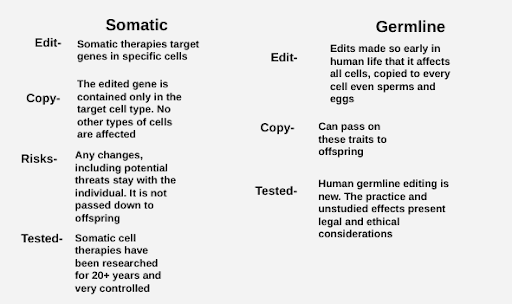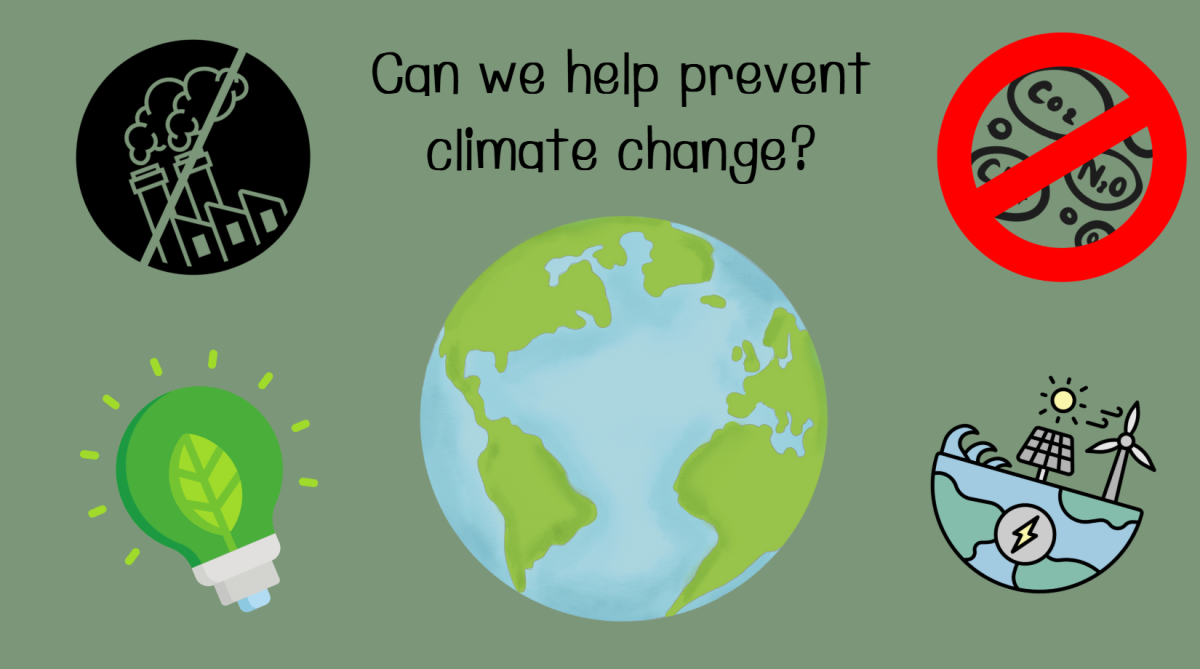Gene editing has the potential to shape our future in the best possible way, but it can also be a huge ethical concern. Gene editing/engineering is where scientists change the DNA in a living organism using various complicated methods. This can also be done with selective breeding, taking specific traits from one organism and breeding them another organism with similar traits to emphasize that specific genotype. Like breeding two dogs with long fur genes to try and get puppies with longer fur. The ethical concerns come from the untested health risks that may come from these edited organisms, for humans, we have used this in gene therapy — replacing mutated or broken genes with new genes to cure a disease or medical disorder. Genetic engineering can be very helpful, but some people raise concerns about a future where aristocrats will change their children’s physical and mental characteristics, fearing that we will create a new superhuman-like generation of these designer babies. Some also believe that it is morally wrong to “play” God and change a person’s DNA.
This image describes the two types of genetic engineering:

Germline genetic engineering is where most people’s concerns lie. Being able to transfer different things to your offspring could be dangerous, and it’s unknown what could happen since it’s understudied. Another thing is editing an early human life before it matured enough to make decisions or even have a full body has been seen by people as unethical and inconsiderate of the future child.
“Well, there will be you to correct certain diseases. I just read about transplanting disease in an article so you can correct genetic diseases like sickle cell,” long-term substitute of science teacher Jeffrey Taylor Carl Godwin said. “There are many others that you could cure as well.”
Genetic engineering could be revolutionary for the medical field, curing hundreds of thousands and even millions of people from common, uncommon and rare diseases — a far stretch would be to say it could cure illness itself!
Another pro to genetic engineering is our food! Many vegetables and fruits have been bred to be bigger and fuller in nutrients than their original. Utilizing this it could potentially help solve the major food crises with bigger amounts of food we have grown.
Unfortunately the cons are problems that must be addressed. The first problem with genetic engineering is how new and unknown the science currently is. The germline gene editing side of it has not been thoroughly researched, and the fear of horrid mistakes on experiments is a big risk. Many countries including Belarus, Canada, Sweden, Switzerland, and others have banned gene editing trials on human embryos for these cons.
“The biggest fear has been what they call eugenics, it’s where you create like a master race, which they tried to do in the 20 and 30s, Adolf Hitler tried to do that to make a master german race, like designer babies,” Dr. Godwin said. “So you transplant those genes from someone smart into our babies and we would get babies from certain genes. It could be bad news.”
Creating babies who are superior to the normal person could create multiple scenarios including the designer children or others using their enhanced abilities to take power and control over others — X-men-like.
This may sound like science fiction but it can become a reality in the near future, the good and the bad could happen. Genetic engineering is a tool that can be used for good or bad, similar to a knife. You could cut up fruits and vegetables with it, or hurt someone. We must keep a close-eye on the progress of genetic engineering so none of the unintended consequences happen. I believe it can solve lots of problems and that we should continue to explore it, we just have to be cautious and mindful of the concerns of other people.
Sources:
Rogers, M. (2023, March 28). Gene-editing: a controversial legacy – Front line genomics. Front Line Genomics. https://frontlinegenomics.com/gene-editing-a-controversial-legacy/#:~:text=While%20gene%20editing%20in%20embryos,unpredictable%20effects%20on%20future%20generations.
Sus, V. (2023, November 20). Genetic engineering: Is it ethical? TheCollector. https://www.thecollector.com/pros-and-cons-genetic-engineering/
Stein, R. (2023, March 8). Ethical concerns temper optimism about gene-editing for human diseases. NPR. https://www.npr.org/sections/health-shots/2023/03/08/1161868040/gene-editing-ethical-concerns-temper-optimism-human-diseases-embryos
Nhgri. (2019, March 13). What are the Ethical Concerns of Genome Editing? Genome.gov. https://www.genome.gov/about-genomics/policy-issues/Genome-Editing/ethical-concerns
Cannon, W., & Cannon, W. (2024, January 10). Perspectives on gene editing. Harvard Gazette. https://news.harvard.edu/gazette/story/2019/01/perspectives-on-gene-editing/







